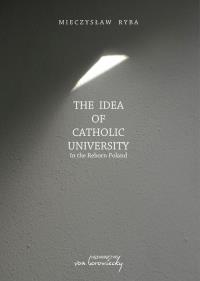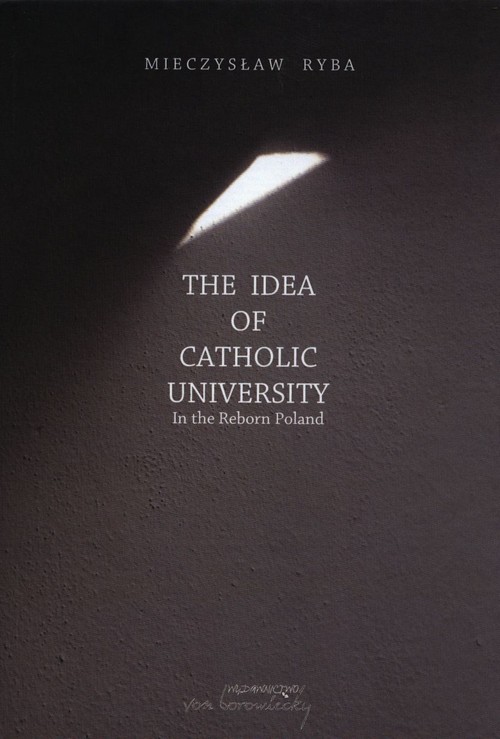
The Idea of Catholic University
In the Reborn Poland
-
Autor: Ryba Mieczysław
- ISBN: 9788365806369
- EAN: 9788365806369
- Oprawa: oprawa: twarda
- Wydawca: Von Borowiecky
- Format: 150x215 mm
- Język: angielski
- Liczba stron: 196
- Rok wydania: 2018
- Wysyłamy w ciągu: 48h
-
Brak ocen
-
21,25złCena detaliczna: 34,90 złNajniższa cena z ostatnich 30 dni: 21,25 zł

Prof. Ryba's book is a study of early years of John Paul II Catholic University of Lublin (KUL), created in 1918, in the year when the reborn Polish Commonwealth was back on the map of Europe after 123 years of the invaders' rule. Key actors and events of those early days are shown here against the backdrop of the universal struggle: the fight for the future shape of human culture which, in this case, was directly linked with the struggles for the soul of the Polish nation and the preservation of its culture in 1920s and 30s. This book gives a profound insight into the ideas and mindsets of the founders and early faculty of KUL. Author's considerations are focused on the spirit that lies at the foundations of this university and forms the base of its identity. Arguably, this approach reveals not only a local, Polish and Lublin-based, set of ideas but also speaks volumes of the spirit of Polishness, unveiling a well-established, and enduring way in which Poles (and Polish Catholics in particular) perceive matters of culture, civilization, and their future.
Już 100 lat temu w Polsce widziano zagrożenie prądami modernizmu, już wtedy stawiano diagnozy o powierzchowności katolicyzmu wśród polskiej inteligencji, która miała być elitą społeczeństwa. I to wtedy zapadła decyzja o konieczności wykształcenia polskiej inteligencji katolickiej, która dałaby odpór laickim poglądom. Ksiądz Idzi Radziszewski, pomysłodawca i założyciel KUL-u, wybitny tomista, który swój doktorat napisał po łacinie na Uniwersytecie w Louvain, zrealizował projekt erygowania katolickiej uczelni nie bez przeciwności, zwłaszcza finansowych, ale dziś możemy obchodzić 100-lecie istnienia tej uczelni, której absolwentami jest wiele znaczących osobistości, m.in. Prymas Tysiąclecia Stefan Wyszyński.

